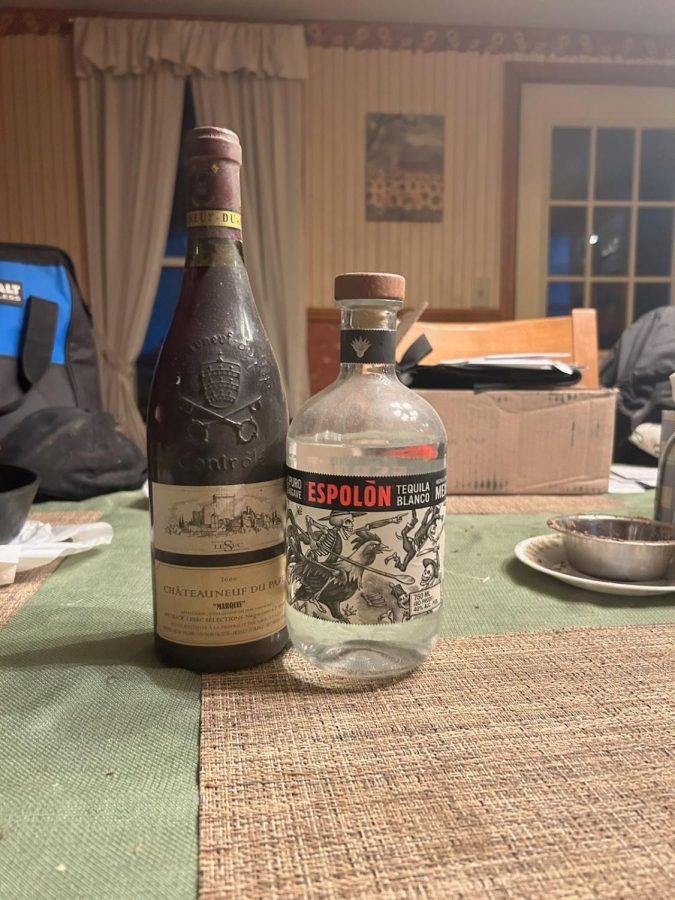Making Alcohol Accessible to Those Who are Underage
I know, the title is jarring. However, America has had a long history in regards to the use of alcohol. Our approach as a nation to people consuming alcohol is, at the very least, individualistic. 61% of countries have a drinking age of 18, while we stand as one of 19 countries with the second highest reported drinking age, 21 (Wisevoter, 1). Additionally, the only country to have a higher drinking age is India where some states have a drinking age of 25 and 30. Those countries with a drinking age of 18 report lower instances of alcohol related crimes, including drunk driving, and they generally have a healthier culture around the consumption of alcohol. If we want to lower alcohol related crime, and create a society with a healthier relationship to alcohol, the answer seems simple: lower the legal drinking age.
Personally, I have followed the MLDA (Minimum Legal Drinking Age) thus far and I never plan to consume alcohol in my life as I have personal family history with drinking, personal moral issues with drinking, and I cannot stand the idea of throwing up or having a headache. That being said, I can attest to the fact that having a higher drinking age does lower reported alcohol consumption overall as well as illicit drug use, as well as the risk of driving while intoxicated, according to a 2016 study done by the Substance Abuse and Mental Health Services Administration. It is a sad reality that 11.25% of people admit to having driven while intoxicated within the last year, and unfortunately the largest percentage of that group were between the ages of 18 and 25 (Lipari, 5). However, making alcohol legal for those 18-20 years old would allow them to be able to call someone for help when they are intoxicated and need to get home without feeling like they’re going to be in serious trouble (Kleiman, 7). Beyond that however, the high drinking age furthers the idea that underage drinking is normal and creates a mindset of non compliance in regards to all substance consumption and in turn other areas of U.S. law, including the purchasing of fake I.D. ‘s (Kleiman, 10). To add on, many law enforcement officials do not spend their time looking for those who are drinking underage, due to resource limitations, statutory obstacles, perceptions that punishments are inadequate, and the time and effort required for processing and paperwork. Approximately two out of every 1,000 instances of underage drinking result in an arrest of some kind. At the very least lowering the drinking age would make it easier to find and prosecute those who are 18 and older when they drive intoxicated, drink too much and cause a scene, or any number of other potential consequences of drinking. Reducing the mindset of non compliance and rebelling against the system would ultimately be better for everyone.
Another reason we should lower the MLDA is because you are already legally recognized as an adult at 18. Now I must concede that just about everything we do is regulated by some varying age of legality, whether it be collecting social security, running for president, or renting a car. This helps to keep society running smoothly, prevents people from clogging up or taking advantage of a system, and promotes general welfare among citizens. Yet 18 year olds must sign up for the draft, they can enlist, get married, get a tattoo, vote in all levels of government, and consent to whatever they want to (Burell, 3). If we now universally recognize them as being responsible for themselves and their health, then why does that end with drinking? It is normalized for 17 and 18 year olds to incur massive amounts of debt to further their education, or to fight in wars across the world, but heaven forbid they want to have a drink about it. To add on, at 18 you can legally be responsible for your own child, yet you are still denied an adult privilege? Todd Rutherford, South Carolina State Representative, cites, “This is a personal freedom issue. If you are old enough to fight for our country, if you’re old enough to vote, if you’re old enough to sign on thousands of dollars of student loans for a college education, then you are old enough to have a drink.”
Given everything I said previously, I cannot deny the fact that consumption of alcohol before the age of 21 is dangerous to the development of the brain and brain health in general. It can interfere with the development of the frontal lobe, and lead to vulnerability to addiction, risk-taking behaviors, memory loss, depression, and violence (FTC, 2). However, while those reasons may be enough to stop some from drinking, we must come to terms with the fact that it does not stop a large majority of teens from drinking. In fact, 60% of Americans will have a drink by the time they are 18, and 32% of Americans between the ages of 18 and 20 admit to having had a drink within the past year (Responsibility, 4). Allowing adults to be able to drink in bars and purchase alcohol safely and make sure that every step is regulated would help make sure people are being safe and responsible (Alcohol, 7). This would also allow adults to get more acclimated to drinking in a safer environment earlier on as well, and help reduce or stigma towards alcohol as a society (Fowler, 4).
Lowering the American MLDA would help us, as citizens of America, in a number of ways, as I stated earlier. As previously said, I personally do not ever plan on drinking nor have I ever drank up to this point. For me, it is about safety and developing a healthier relationship with alcohol as a society. The best way to do that is to lower the drinking age and join the rest of the world.
Works Cited
Dangers of Teen Drinking | Consumer Advice, https://consumer.ftc.gov/articles/0387-dangers-teen-drinking. Accessed 22 March 2023.
Burrell, Jackie. “Information Parents Need to Know When a Child Turns 18.” Verywell Family, 14 November 2022, https://www.verywellfamily.com/everything-to-know-when-child-turns-18-3570442. Accessed 22 March 2023.
“Drinking Age by Country 2023.” Wisevoter, https://wisevoter.com/country-rankings/drinking-age-by-country/. Accessed 23 March 2023.
“Drinking Learners Permit Would Reduce Alcohol Abuse.” Alcohol Problems and Solutions, https://www.alcoholproblemsandsolutions.org/drinking-learners-permit-would-reduce-alcohol-abuse/. Accessed 20 March 2023.
“The Fight Against Underage Drinking | Stats on Teen Alcohol Use.” Responsibility.org, https://www.responsibility.org/alcohol-statistics/underage-drinking-statistics. Accessed 23 March 2023.
Fowler, Bethany. “State Rep. Todd Rutherford wants to lower SC drinking age to 18.” WSPA, 10 November 2021, https://www.wnct.com/news/southeast-region/state-rep-todd-rutherford-wants-to-lower-sc-drinking-age-to-18/. Accessed 23 March 2023.
Kleiman, Mark. “Of amethysts and fake ID’s – The Reality-Based Community.” The Reality-Based Community, 20 August 2008, https://www.samefacts.com/of-amethysts-and-fake-ids/. Accessed 21 March 2023.
Lipari, Rachel N., et al. “Driving Under the Influence of Alcohol and Illicit Drugs.” SAMHSA, 27 December 2016, https://www.samhsa.gov/data/sites/default/files/report_2688/ShortReport-2688.html. Accessed 20 March 2023.

Molly is a senior and this is her 2nd year on EMC. She is involved in a number of other clubs, including Class President, Student Senate Secretary/Treasurer,...

